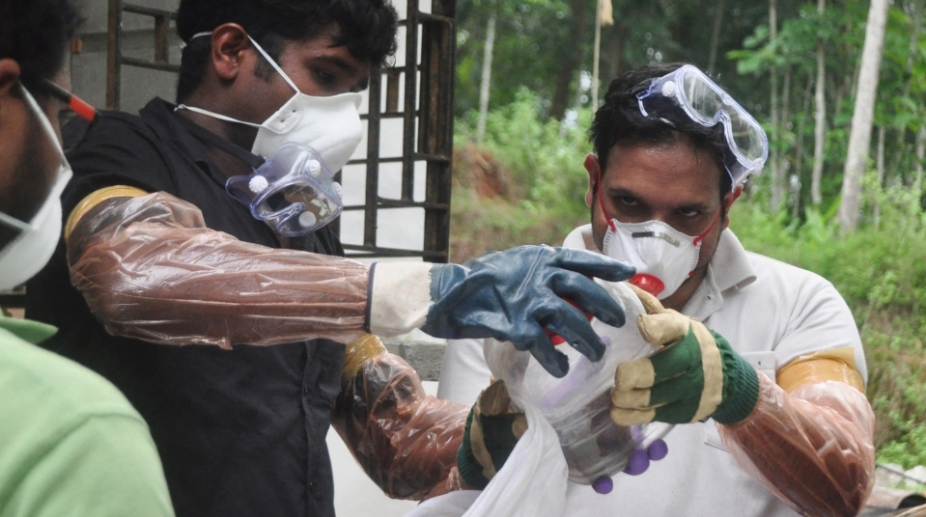With one more person succumbing to the deadly Nipah virus (NiV) on Thursday, the death toll in Kerala has now jumped to 16.
On 31 May, 25-year-old Resin, who was undergoing treatment at the Kozhikode Medical College and Hospital (KMCH), died.
Advertisement
Akhil, 28, a native of Karassery who had been under treatment at KMCH since 29 May, lost his life on 30 May. Madhusudhanan, 55, of Nellikode, who was undergoing treatment in a private hospital in Kerala, also breathed his last on the same day.
But the World Health Organisation (WHO) has advised against the application of any travel or trade restrictions on India based on the information currently available on the situation.
“Research is needed to better understand the ecology of bats and NiV,” stresses WHO, adding that there are no specific treatments available for Nipah virus disease.
WHO is in contact with national authorities and is closely monitoring the virus. The Centre has sent a multi-disciplinary team from the National Centre for Disease Control to Kerala to investigate the spread of the disease.
In a statement, the WHO said that it has shared materials, especially risk communication materials on Nipah virus, including those used in Bangladesh, with the Ministry of Health and Family Welfare.
“The MoHFW is conducting preliminary investigations and may request that WHO support the response,” reads the WHO statement, which acknowledges Centre’s response but predicts that the support of the specialised agency of United Nations might be sought.
The Health Ministry has also shared guidelines drafted by the National Centre for Disease Control with states and relevant stakeholders and also posted them on the Ministry’s website.
According to WHO, infection prevention and control measures have been strengthened in health facilities, Acute fever and acute encephalitis syndrome (AES) surveillance have been enhanced across Kerala, and the Virus Research Diagnostic Laboratory at Manipal Hospital and the National Institute of Virology are conducting laboratory testing to confirm cases.
The government is coordinating with all relevant sectors including zoonosis, wildlife, animal husbandry, human health, clinicians, pulmonologists, neurologists and private sector.
The WHO suggested that avoiding sick pigs and bats in endemic areas will help in preventing NiV infection. Avoiding consuming fruits partially-eaten by infected bats or drinking raw date palm sap/toddy/juice can also help prevent the virus from infecting humans.
“In health care settings, staff should consistently implement standard infection prevention and control measures when caring for patients to prevent nosocomial infections,” read the WHO advisory.
“Health care workers caring for a patient suspected to have NiV fever should immediately contact local and national experts for guidance and to arrange for laboratory testing,” it reads.
Health department said that 18 people have tested positive for the Nipah virus so far, of whom 16 have died. Two are undergoing treatment.
According to PTI, the number of samples tested for Nipah virus is 196, of which 178 have tested negative.
In Kolkata, a 28-year-old soldier from Kerala, who was posted at Fort William, Kolkata, died of suspected Nipah virus last week.
Over 1,300 people, who had come in contact with the affected persons before the confirmation of the virus, are under observation.











